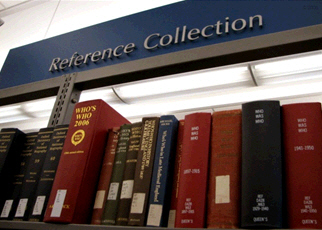The official website of the Nobel Prize Foundation is www.nobelprize.org.
Information can be found on this website.
This year there was none being rewarded yet, because the Awards will be held beginning of October.
For a detailed list of the Nobel Price Laureates 2008 I kindly would like to redirect you to the following link, which offers the details:
http://nobelprize.org/nobel_prizes/lists/2008.html
What is the Nobel Prize?
 Many wonder why Nobel established the Nobel Prize. It has often been assumed that he sought to make restitution for creating dynamite. Nobel did catch a glimpse of a French obituary for himself when his brother died and a French newspaper thought Nobel had died. Among other colorful terms, the newspapers called Alfred Nobel a “merchant of death.” Thus the restitution to reward the positive aspects of the world remains the popular theory on the establishment of the Nobel Prize.
Many wonder why Nobel established the Nobel Prize. It has often been assumed that he sought to make restitution for creating dynamite. Nobel did catch a glimpse of a French obituary for himself when his brother died and a French newspaper thought Nobel had died. Among other colorful terms, the newspapers called Alfred Nobel a “merchant of death.” Thus the restitution to reward the positive aspects of the world remains the popular theory on the establishment of the Nobel Prize.Alfred Nobel died in 1896. The first Nobel Prize was awarded in 1901. Nobel stipulated exactly how the prizes should be determined, and what bodies should be responsible for selecting and awarding prizes.
According to Nobel’s will, the Swedish Academy of Science was to award a yearly Nobel Prize in Physics and Chemistry. The Caroline Institute at Stockholm would award the Nobel Prize for medicine. The Academy of Stockholm would determine the Nobel Prize for literature. Five members selected by the Norwegian government select the recipient of the annual Peace Prize. The Peace Prize is awarded in Oslo, Norway, while the other Nobel Prizes are awarded in Stockholm, Sweden. Each award was to be given without regard to nationality, and was meant to represent the best and brightest contributors to each field.
Some confusion exists over a sixth category, the Nobel Prize in Economics. This is not technically a Nobel Prize because it was not listed in Nobel’s will, and it does use Nobel’s foundation to award funds. This award was established in 1969 and is awarded by the Swedish Academy of Sciences. Monies awarded come from the Bank of Sweden.
Typically the Nobel Prize means one wins a medal, international recognition, and a sum of money for ongoing work in one’s field. Often the money is not greatly important since people receiving the award tend to be at the end of their careers. Currently, those receiving the Prize may receive a little over one million US dollars (USD).
Since the Prize’s establishment, over 750 awards have been given. The Nobel Prize tends not to be awarded posthumously, which has met with some controversy. Some of the recipients of the award have also been criticized. For example, Mahatma Gandhi never won the Nobel Peace Prize despite his sterling efforts to promote non-violent protests and fair government in India.
Others have complained about the absence of a Nobel Prize for advances in the field of mathematics. In 2002, the Niels Henrik Abel Memorial Fund was created to fill in for this absence. Each year, five mathematicians from the Norwegian Academy of Science and Letters select the Abel Prize recipient for his or her outstanding achievements in mathematics.
Source: http://www.wisegeek.com/what-is-the-nobel-prize.htm
What is the Nobel Prize Foundation?
The Nobel Foundation is a private institution established in 1900 based on the will of Alfred Nobel. The Foundation manages the assets made available through the will for the awarding of the Nobel Prize in Physics, Chemistry, Physiology or Medicine, Literature and Peace. It represents the Nobel Institutions externally and administers informational activities and arrangements surrounding the presentation of the Nobel Prize. The Foundation also administers the Nobel Symposium Program.
Source: http://nobelprize.org/nobelfoundation/index.html
2.) Summarize the information you got from SPU Library.
 Instead of the SPU library website, I visited the Encarta website online.
Instead of the SPU library website, I visited the Encarta website online.What information did I find there searching for "automobile"? The following was found on the website:
The contents about the automobile is structured in categories and subcategories as followed:
I Introduction
- containing a definition and explanation
II Power System
- introducing the power system
A Engine
- describing the engine's functionality
B Engine Types
- describing different engine types
C Fuel Supply
- describing the fuel supply
D Exhaust System
- describing the emission exhaust of the machines
E Cooling and Heating System
- describing the system of how the machine handles heat & how the cooling system absorbs it
III Drivetrain
- definition of the way the engine works
A Transmission
- describes the transfer of engine power to become a movement
B Front- and Rear-Wheel-Drive
- describes the kinds and differences of the types of wheel-drives
IV Support Systems
- raising the topic of helping components
A Suspension System
- describes the absorbtion of energies (bumps) during the drive
B Wheels and Tires
- describes the functions and tasks of the wheels and tires
V Control System
- defines the way the vehicle is controlled
A Steering
- describes the function of the steering parts
B Brakes
- describes the functions of brakes
VI Electrical System
- defining the electric energy supply and necessity
A Ignition System
- describes the duty and function of the ignition system
VII Safety Features
Defines and describes various safety features modern cars are possessing
 VIII History
VIII History- this part finally gives an insight into the history of the automobile development
A Internal-Combustion Engine
- describes the development of the internal-combustion engines
B Early Electric Cars
- describes the development of first electric cars
IX Automobiles in the 20th Century
- reports the further development of cars particularly of the 20th century
X New Technologies
- gives an insight into newly invented technologies in cateories
A Antipollution Strategies
- describes developments and achievements of the reduction of pollution and emission
B Hybrid-Electric Vehicles (HEVs)
- describes the new technology of a mixed power supply of fuel and electricity
C Computers and Navigation Devices
- describes the development of electronic control units and navigation devices (1990ies)
D Other Improvements
- describes new improvements in electronics and physics of automobiles
Source: http://encarta.msn..com/encyclopedia_761576902/Automobile.html
3.) What is the difference between general book and reference book?
 The reference book is usually very topic related in a professional and advisory matter. The general book on the other side is rather related to stories, free writing and expression. A general book can for example be a novel of an author, a storybook. The reference books can be dictionaries, manuals etc. We refer to reference books in order to get answers on questions, whereas the general books might rather be of an entertaining nature.
The reference book is usually very topic related in a professional and advisory matter. The general book on the other side is rather related to stories, free writing and expression. A general book can for example be a novel of an author, a storybook. The reference books can be dictionaries, manuals etc. We refer to reference books in order to get answers on questions, whereas the general books might rather be of an entertaining nature.Source: personal definition
4.) When do you need to search information from the reference collection?
 Anytime a question arises, may it be about an electronic device, missing vocabulary or any knowledge we want to gain, then we may refer to reference books in order to find the answers.
Anytime a question arises, may it be about an electronic device, missing vocabulary or any knowledge we want to gain, then we may refer to reference books in order to find the answers.Source: personal definition
5.) What type of reference collection that you like to use most? And why?
Hm, actually this answer is difficult to answer, because I think that in my daily life I'm refering to a couple of reference books or reference sources. I think that in my personal life this is usually done by questions arising ona topic, for which the answer I'm trying to find online. The obnly reference book I have at home is a Dictionary, but usually when I'm home, I'm referring to the internet, looking for the answers there.
But I can say that I prefer serious and trustworthyreferences, which deliver the necessary information in a precise and user-friendly way at "first sight". Illustrated references additionally are a nice eye-candy and can help to easen up the understanding many times.
Source: personal definition
6.) Copy one page of the specific book category you chose and write what you learned from this page.
Category chosen: INDEX
Well, what can I actually learn from an index. The point here is that the index usually is not necessarily a kind of book, it is mostly a part of a book.
It can be a part of any reference book. When we talk about "learning from the index", then one would normally say that there is no specific material inside the index that can be learned. But instead of being a subject of learning and studies, the index is a very helpful and structured guide and helps to make the book it is a part of most helpful and workable for you. The index is structured usually from A to Z and offers the keywords of subjects and the pages and references these keywords belong to.
But, an index can be a book or a website as well, containing a big collection of references and contents people can refer to. One example for this could also be a website, containing many links to other websites in alphabetical order or categorized.
Source: personal definition

No comments:
Post a Comment